We pulled quotes from 13 people who talk about their lives and experiences as members of the LGBTQ community in the 1960s. These first-person accounts better illustrate what living, loving, and organizing was like in the time leading up to the Stonewall Riots.
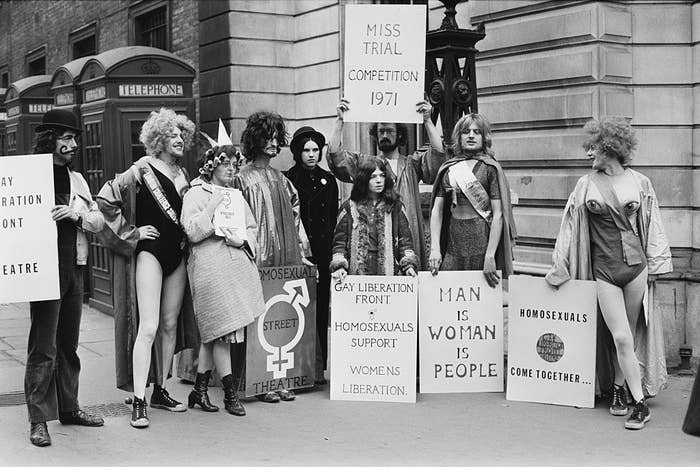
On ingenuity:
“I’d sit on the stage and when the cops would come in — y’know because we were raided all the time. Sometimes we knew it sometimes we didn’t. But Jimmy would have a button under the bar. So, when the cops came in he would hit the button and a red light would come on in the back of the room which meant that I had to make sure there was boy-girl, boy-girl, boy-girl when there was dancing. Everyone had to hide their alcohol because we’d bring our own, we weren’t allowed to be served. And hopefully that everyone had identification….They were just nasty.”
—Jay Toole on being a bouncer for the mafia-owned lesbian bar Club Bohemia.
On bath houses:
"And I really was very much against the baths, because of what I saw it doing to the gay community. The social structure was deteriorating. Everything had become anonymous all of a sudden. Anonymous sex. And I could not understand or accept. I could not go to bed with somebody I did not know. And to just fling themselves with abandon for a hard cock had no value to me."
—Jack Adair, reflecting on how the opening of bath houses affected his sex life and the social scene of gay men in the 1960s.
On being undocumented and a lesbian:
"I was having not a sexual, but a romantic involvement with this woman, and we had had dinner. We were going to Rusty's and she was applying for her citizenship. So she was quite reluctant. And I said, 'Oh, just for a drink.' And they came. And because I was so anxious to protect her, I think they got suspicious. The minute they came into the room, I just popped up and said, 'She's here as a visitor. She doesn't have anything to do with this place.' So they pulled me out and they made me show my identity and they shouted out loud in my face, but then they left. But by then I was a citizen, so I really didn't feel too threatened."
—Ada Bello, a Cuban-born lesbian, talking about what it was like to be on a date with an undocumented woman at a lesbian bar under a police raid. Bello later joined the lesbian organization Daughters of Bilitis under a false name because she hadn’t yet received citizenship.
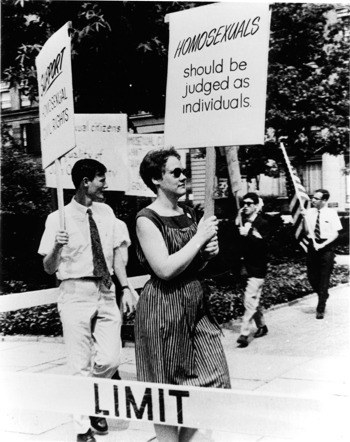
On The Ladder:
"When I inherited it, I was getting nothing but artwork for covers. There was a little file of artwork and it was pretty awful, most of it, really bad. We wanted to show lesbians and others who might be reading the magazine that lesbians are happy, healthy, wholesome, nice looking people just like everyone else. And we had to do this because actually a lot of lesbians at the time didn't know this. They didn't know what to think of being a lesbian."
— Barbara Gittings, editor of the lesbian-centric magazine The Ladder from 1963 to 1966. It was the first lesbian publication to be distributed in the US.
On friendly cops:
"I knew a lot of cops that knew me and Wayne, and they taught me a lot of stuff. A couple I had been out with before, so it went down through the grapevine, you know, blah blah blah, we’re friends...And they’d tell me all kinds of stuff, like not getting busted. If somebody tried to pick you up and pay you, they going to pay you money, don’t take it by hand. Tell them to put it on the bar, because if you put in on the bar it ain’t nobody’s money."
—Drag performers and long-time friends Josie Carter and Jaime Gays explaining the covert relationship cops had with gay bars and their patrons in the '60s.
On navigating the law:
“And even the crossdressers were pissed off because by law they had to have at least three articles of clothing on them that were according to their birth gender. That all these things set up to… guarantee that we would have a record. They would tell us to go across the street, and we would follow the police orders; and there would be another cop across the street waiting to give us a ticket for jaywalking.”
—Stonewall participant Roy McCarthy recalling the social climate that led to the Stonewall uprising.
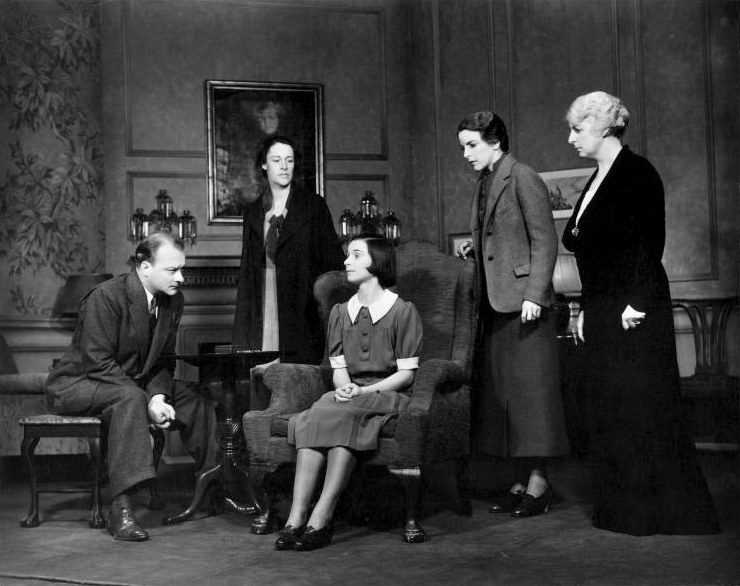
On representation:
“Last night I saw The Children’s Hour. Imagine that! Imagine a movie that portrays homosexuality and makes almost no bones about it. Oh, the words homosexuality or lesbian were never mentioned but Audrey Hepburn as Karen says, “They say Martha and I are lovers.” Shirley MacLaine as Martha was superb. There was no courage involved in Hepburn’s portrayal of Karen. After all, Karen was not homosexual. But Martha was. MacLaine was brave to do it. Why, I even felt hesitant about even going to the movie.”
—Marge McDonald, writing in her diary about going to see the 1961 Shirley MacLaine film The Children’s Hour, which features a lesbian character.
On fear:
“I remember hearing about another night, when a police raid bagged an illegal alien who, arrested and brought into the station, threw himself in despair from the window, landing, impaled, on a spiked iron fence below...Somehow he survived.”
—Martin Duberman, in his 1991 book Cures: A Gay Man’s Odyssey.
On fitting in:
"So, at the height of the hippie movement, the anti-war movement. I wore stuff that nobody else would wear. I was pretty well known for my people pants – I had these pants, they were white with blue faces all over them. I wore Nehru shirts, which nobody wore. So, I distinguished myself but not as effeminate, I guess."
—Paula Overby, a trans woman, talking about growing up in New Hampshire and how the left-leaning culture allowed for gender play. She goes on to talk about how the rising tide of gay power led her originally to live as a gay man in college.
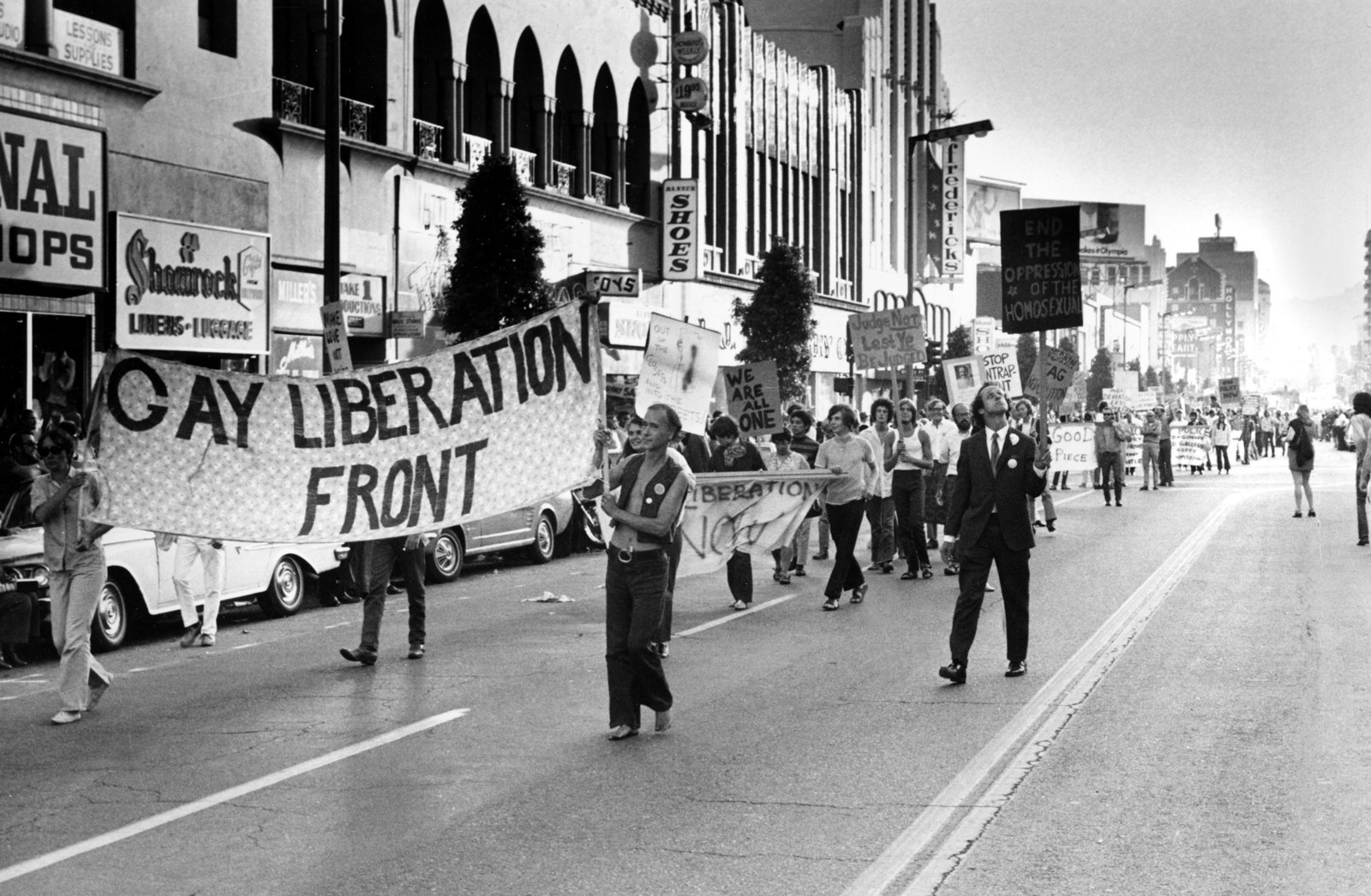
On funding Gay Liberation:
"Forty percent of the people at the earliest People's Fund meeting were gay liberation people. The groups that were getting money, many of them we had worked with, we had supported them, we had doubled the size of the picket lines. And yet when it came down to money, we were voted out."
—Kiyoshi Kuromiya discussing the lack of support the Gay Liberation Front received from social change nonprofit the People’s Fund. They had applied for funding, but were denied the chance to present for their cause.
On the moment before the Stonewall Riots:
“I thought, I don’t want to leave! That crossed my mind very strongly. I just got here and I’m supposed to leave? And stand in line to get checked for my ID? And I felt myself boiling up inside, getting more and more angry. And then I noticed the police were doing some damage to the room. The side room had benches along the wall that you could sit on. They had a hollow cavity underneath — and the police were ripping apart these benches, tearing them apart. I thought, What are they doing that for?”
—Michael Fader, as quoted by David Carter in his book Stonewall: The Riots That Sparked the Gay Revolution.
On fighting with cops:
“Something happened. Sounded like a boom. I don’t know if it was a firecracker. Someone said it was a beer bottle. Someone else said one of the girls took her heel and and broke a plate glass window. I don’t know what the hell it was. All I know is that all of a sudden, everyone was fighting. And I had learned from being in jail that if you’re in that kind of situation, the thing to do is to piss the police off so he knocks you out, then you don’t get hurt. Because if you stand there and fight them, they’re going to break every bone in your body. So I got knocked out early, came to as they were dragging my body. Dragging 'em and putting me in the back of some car. And then we went to court and they let everybody go.”
—Miss Major, legendary activist, remembering how she dealt with the cops on Stonewall's first night.
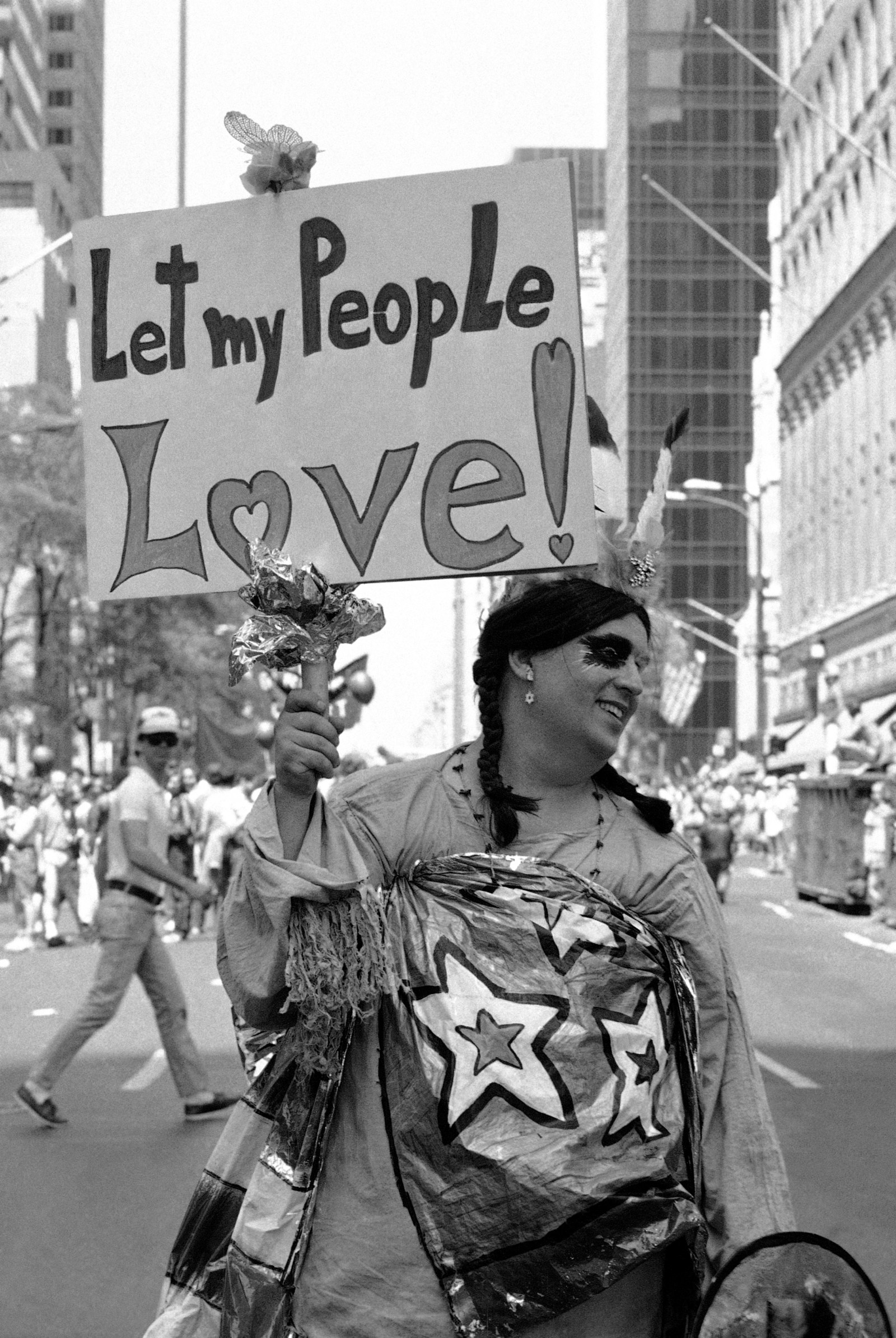
On acceptance:
"It is kind of interesting though because growing up I used to hang out with my sisters and we talked about how cute the captain of the basketball team was and they never said, 'What? Why are you around here talking about that for?' We never had that kind of conversation. It was sort of natural for them that I would talk or feel that."
—James Credle saying his family never questioned his sexuality as a teenager. Credle had joined the basketball team and was a gifted athlete and student. He says he’s never had a conversation with his family about his sexual identity, but that they’ve always been accepting.

